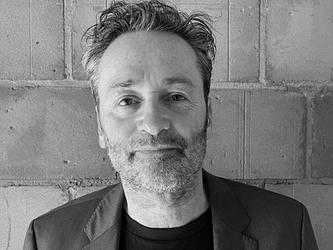Will Johnson in seven
1. What attracted you to the polling industry?
My background has always been in research. My interest in polling dates back to my undergraduate studies, when I researched the emerging political significance of the millennial generation. Most associate polling with elections and campaigns, but its usefulness transcends politics. Overlaying insights extracted from polls across other data, such as observed behaviour, allows us to dig even deeper into several underlying social phenomena.
2. Is the polling industry held in high regard by the public in the US?
We recently surveyed public trust in the polling industry, and while public opinion polls aren’t often a go-to information source for Americans, most ( 59%) still consider them to be trustworthy. More importantly, polls – compared with other information sources, such as national, local and social media – are considered among the most trustworthy by their users. Nearly nine in 10 consumers of public opinion polls find them trustworthy, matched by local news users ( 87%) and exceeded only by people the respondents know personally ( 93%).
3. How has Covid-19 changed public opinions on a permanent basis?
The forced move to remote working and increased time at home unleashed an unparalleled wave of resignations, which has altered the nature of the US labour market. As many companies are implementing rigid return-to-office plans, employees who have worked from home for more than two years are using their historically strong leverage to negotiate for continued flexibility. Employees expect more from their companies now, and those expectations are here to stay.
4. Do you think society in the US is irreparably divided?
No. While discourse is loud and often unhappy, human beings are intelligent and complex – capable of holding nuanced views. We’ve found Americans, generally, are for Black Lives Matter and against defunding the police. Both those positions may stand as being synonymous with supporting the Democratic and Republican parties, but the reality is that most Americans do not fit neatly into two camps from issue to issue. Polls dating back decades reflect similar levels of concern about divisions in American society, and this concern seems to be a feature – not a bug – of democracy.
5. How should brands respond to the current political climate?
When it comes to navigating specific issues, brands must first examine how close the issue is to what the company does. For example, it makes sense for healthcare providers to be vocal about policies impacting their standard operations and their patients. But the further removed from the company’s line of business, the more caution its executives should exercise before speaking out on lightning-rod issues that may alienate key stakeholders. With that in mind, you can’t really go wrong with traditional corporate social responsibility efforts, such as service days and pro bono work.
6. Does the public have higher expectations from brands?
One of the more surprising pandemic trends has been the rise of business as one of the most trusted institutions in society. Expectations increase with expanded trust. A recent poll found that 68% of US adults think it’s more important for companies to take a stance on social issues. In a tight labour market, even leaders of brands that don’t interface much publicly are expected to lead with moral clarity more than in the past.
7. Can brands maintain a global outlook and satisfy local consumers?
Yes, keeping in mind that some local markets may occasionally require special attention. Executives can’t be subject-matter experts on all the external factors impacting their businesses, so it is important to engage a balanced team of consultants to inform decisions as they relate to key markets and stakeholders.
This article was first published in the January 2023 issue of Impact.

We hope you enjoyed this article.
Research Live is published by MRS.
The Market Research Society (MRS) exists to promote and protect the research sector, showcasing how research delivers impact for businesses and government.
Members of MRS enjoy many benefits including tailoured policy guidance, discounts on training and conferences, and access to member-only content.
For example, there's an archive of winning case studies from over a decade of MRS Awards.
Find out more about the benefits of joining MRS here.













0 Comments